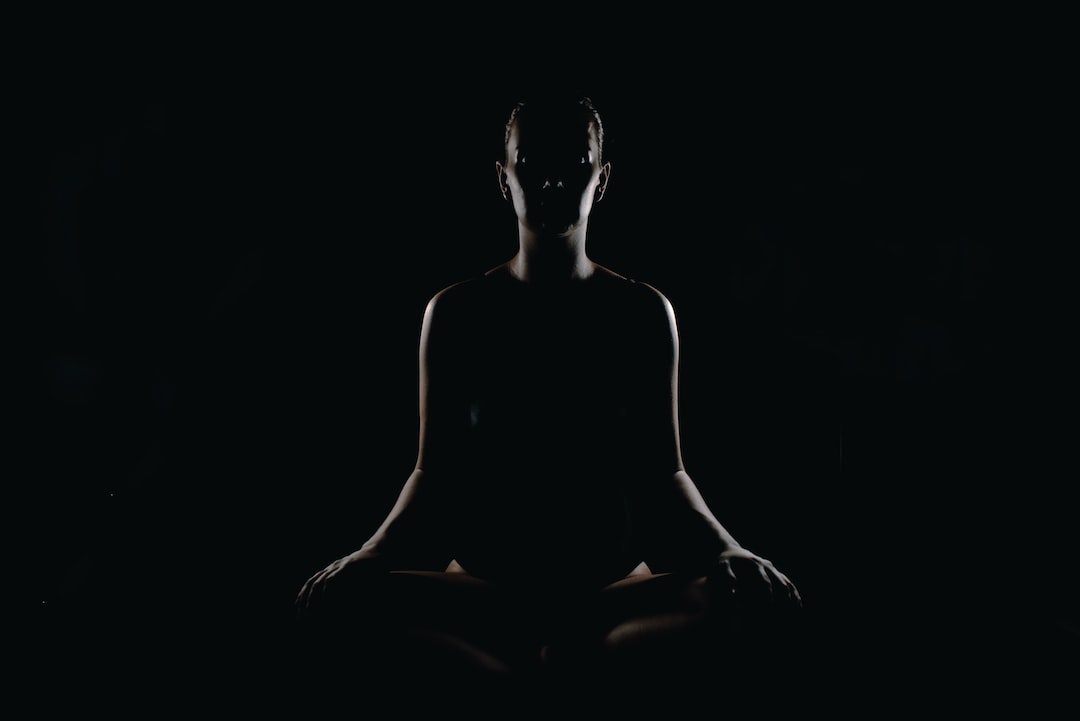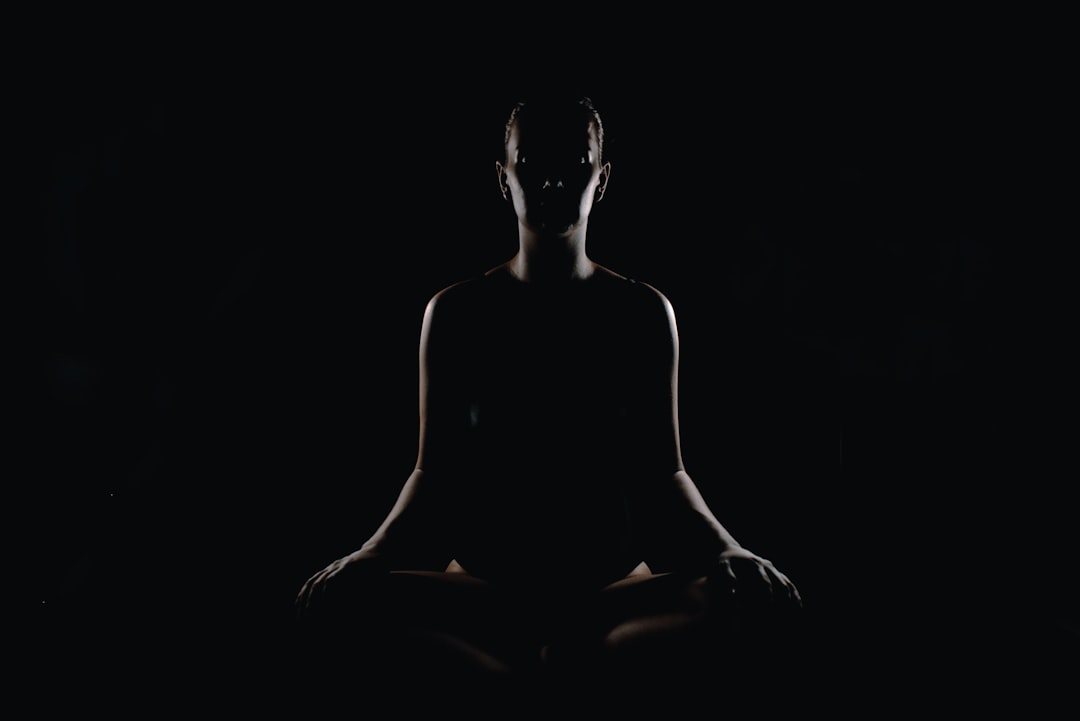Add description, images, menus and links to your mega menu
A column with no settings can be used as a spacer
Link to your collections, sales and even external links
Add up to five columns
Add description, images, menus and links to your mega menu
A column with no settings can be used as a spacer
Link to your collections, sales and even external links
Add up to five columns

The Ultimate Guide to Meditation
February 13, 2024 6 min read
The Ultimate Guide to Meditation: Effective Techniques for Managing Stress and Anxiety
Discover the best meditation techniques for stress and anxiety, including mindfulness meditation, diaphragmatic breathing, progressive muscle relaxation, guided imagery, body scan meditation, loving-kindness meditation, and yoga, along with the benefits of cognitive therapy, in this comprehensive guide to managing stress and anxiety.
Understanding the Impact of Stress and Anxiety
In today's fast-paced world, stress and anxiety have become pervasive issues, significantly affecting the mental and physical well-being of individuals. The pressures of modern life, coupled with various societal and personal demands, contribute to the prevalence of these conditions. It's important to recognize that stress and anxiety can manifest in different ways, from mild unease to severe distress, impacting individuals across all age groups and backgrounds.
The negative implications of stress and anxiety extend beyond the individual, often infiltrating and straining relationships, hindering work productivity, and diminishing the overall quality of life. For instance, chronic stress can lead to irritability and withdrawal, affecting personal connections, while anxiety can result in decreased concentration and performance at work. Recognizing these far-reaching effects highlights the urgent need for effective stress management techniques to mitigate these challenges and restore a sense of balance and well-being in individuals' lives.
The Science Behind Meditation and Stress Reduction
In today's society, stress and anxiety have become prevalent issues, significantly impacting mental and physical well-being. The fast-paced, high-pressure nature of modern life has contributed to the widespread experience of these challenges, making effective stress management techniques more crucial than ever. Stress and anxiety not only affect individuals personally but also have negative implications for their relationships, work, and overall quality of life. Therefore, understanding the science behind meditation and stress reduction is essential in addressing these pervasive issues.
When individuals engage in meditation, it helps activate the brain's "relaxation response," leading to the alleviation of mental and physical effects associated with anxiety. This response counteracts the body's stress response, effectively reducing the impact of anxiety on both the mind and body. Furthermore, the practice of meditation has been found to increase levels of 'feel-good' chemicals that enhance emotional resilience and promote overall well-being. These biochemical changes contribute to a reduction in anxiety symptoms and provide individuals with tools to better manage their mental health. Studies have consistently shown the proven effectiveness of meditation in reducing anxiety levels and improving overall mental health. By incorporating meditation into daily routines, individuals can experience the comprehensive benefits of improved mental well-being and reduced anxiety levels, offering a holistic approach to addressing stress and anxiety.
In summary, understanding the science behind meditation and stress reduction is crucial for combating the prevalence of stress and anxiety in today's society. By recognizing the impact of meditation on the brain's relaxation response, the increase in 'feel-good' chemicals, and its proven effectiveness in reducing anxiety symptoms, individuals can embrace meditation as a powerful tool for managing stress and anxiety, promoting overall health and well-being [2][3].
Benefits of Meditation for Stress and Anxiety
The prevalence of stress and anxiety in today's society has led to a significant impact on mental and physical well-being. These conditions can manifest as racing thoughts, muscle tension, rapid heartbeat, and difficulty breathing, affecting individuals both mentally and physically. The negative implications of stress and anxiety extend to relationships, work, and overall quality of life, emphasizing the urgent need for effective stress management techniques to combat these challenges.
Meditation has been shown to activate the brain's "relaxation response," effectively alleviating the mental and physical effects of anxiety. By engaging in meditation, individuals can increase levels of 'feel-good' chemicals, which in turn enhance emotional resilience and contribute to promoting overall well-being. Research has also highlighted the proven effectiveness of meditation in reducing anxiety symptoms and improving mental health, making it a valuable practice for individuals seeking relief from stress and anxiety. It's important to recognize the comprehensive benefits of meditation, as it not only addresses mental well-being but also has a profound impact on reducing anxiety levels and promoting emotional resilience. Mindfulness-based cognitive therapy (MBCT) and mindfulness-based stress reduction (MBSR) are two specific techniques that have demonstrated exceptional efficacy in reducing anxiety and depression symptoms, providing individuals with valuable tools for managing their mental health. The positive impact of meditation on emotional resilience and well-being further solidifies its role as a powerful tool for managing anxiety and promoting overall mental and emotional health.
Cognitive Therapy as a Complementary Approach
Cognitive therapy, particularly mindfulness-based cognitive therapy (MBCT), is an essential complementary approach in managing stress and anxiety by addressing negative thought patterns and promoting emotional resilience. MBCT combines cognitive therapy techniques with mindfulness meditation to help individuals recognize and change thought patterns that contribute to stress and anxiety, leading to an overall improvement in mental well-being.
For example, in MBCT, individuals are guided to observe their thoughts and emotions without judgment, allowing them to develop a healthier relationship with their internal experiences. Through this process, they can gain a better understanding of how their thought patterns influence their emotional state, empowering them to respond to stress and anxiety in a more constructive manner. This integrated approach helps individuals cultivate a sense of self-awareness and emotional regulation, contributing to a reduction in anxiety symptoms and an enhanced ability to cope with stressors in daily life.
Moreover, the synergy between meditation practices and cognitive therapy underscores the importance of addressing both the cognitive and emotional aspects of stress and anxiety. By integrating mindfulness-based cognitive therapy with meditation techniques, individuals can harness a more comprehensive toolkit for managing their mental well-being, promoting a deeper sense of calm and emotional balance. This holistic approach acknowledges the interconnected nature of mental health and emphasizes the value of combining therapeutic interventions to address the multifaceted challenges posed by stress and anxiety.
 Meditation Techniques for Stress and Anxiety
Meditation Techniques for Stress and Anxiety
When it comes to meditation techniques for stress and anxiety, mindfulness meditation is a widely recognized and effective practice for promoting mental clarity and reducing stress levels. This technique involves focusing on the present moment, acknowledging thoughts and feelings without judgment, and gently bringing the mind back to the present when it wanders. For example, by concentrating on the sensation of breathing, individuals can cultivate a sense of calm and awareness, which can be particularly beneficial in managing stress and anxiety.
In addition to mindfulness meditation, diaphragmatic or abdominal breathing techniques have been found to have calming effects on the body during anxiety-inducing situations. This involves taking slow, deep breaths, filling the lungs with air and allowing the abdomen to rise and fall with each breath. By engaging in intentional and controlled breathing, individuals can activate the body's relaxation response, which can counteract the physiological symptoms of stress and anxiety, such as rapid heartbeat and muscle tension. Practicing diaphragmatic breathing regularly can contribute to a greater sense of calm and well-being, making it an effective tool in stress management.
Moreover, progressive muscle relaxation is another technique that plays a vital role in reducing physical symptoms of anxiety and stress. This practice involves tensing and then relaxing different muscle groups in the body, promoting a sense of physical and mental relaxation. By intentionally releasing tension in the body, individuals can experience a reduction in overall stress levels and a greater sense of ease. Combining these meditation techniques with other relaxation strategies, such as guided imagery, body scan meditation, loving-kindness meditation, and yoga, can create a comprehensive approach to managing stress and anxiety, offering individuals a variety of tools to support their mental and emotional well-being [3].
 Practical Application of Meditation and Cognitive Therapy
Practical Application of Meditation and Cognitive Therapy
When it comes to managing stress and anxiety, integrating meditation techniques and cognitive therapy into daily life can be highly effective. These practices can help individuals develop the necessary skills to cope with the challenges of everyday life. For example, incorporating mindfulness meditation into daily routines can promote mental clarity and reduce stress levels. This can be achieved by setting aside a few minutes each day to focus on the present moment, allowing the mind to rest and rejuvenate amidst the chaos of daily life. Over time, individuals may notice a significant improvement in their ability to manage stress and anxiety, leading to an overall sense of well-being and calm.
In addition to meditation, cognitive therapy can complement these practices by addressing negative thought patterns that contribute to stress and anxiety. Mindfulness-based cognitive therapy, in particular, can help individuals recognize and reframe these negative thoughts, leading to a more balanced and positive mindset. By integrating these cognitive techniques with meditation practices, individuals can develop a holistic approach to managing their mental health, thereby enhancing their overall well-being and resilience in the face of stress and anxiety.

